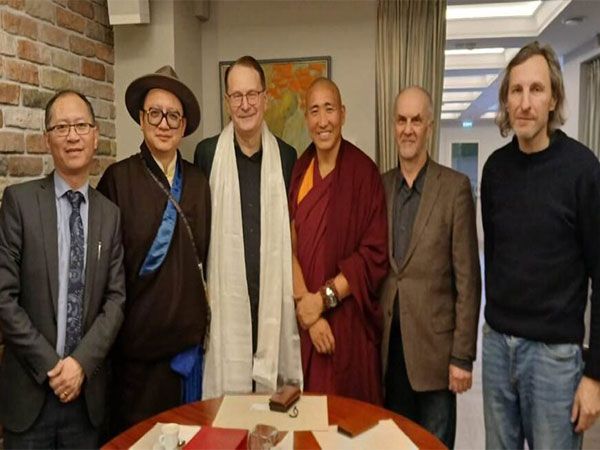Tibetan MPs Advocate for Autonomy in Lithuania Amid Global Tensions
Tibetan parliamentarians launched a campaign in Vilnius, Lithuania, highlighting China's repression of Tibetan culture. They met with European MP Dainius Zalimas, urging him to support Tibet's autonomy. Despite political challenges, Zalimas reaffirmed his backing. The ongoing struggle for Tibetan autonomy continues to inspire international advocacy and debate.

- Country:
- Lithuania
In a significant push for international backing, Tibetan parliamentarians Geshe Lharampa Gowo Lobsang Pende and Wangdue Dorjee initiated an advocacy campaign in Vilnius, Lithuania, on November 11. They met European Parliament Member Dainius Zalimas to spotlight the Chinese government's suppression of Tibetan religious freedoms and Sinicisation of its culture, as detailed in a release by the Central Tibetan Administration.
The process of Sinicisation, which involves assimilating non-Chinese groups into Chinese culture, has been a point of contention. The Tibetan MPs presented Zalimas with an appeal letter from the Speaker of the Tibetan Parliament-in-Exile, urging the preservation of Tibetan culture and autonomy.
Zalimas was invited to the World Parliamentarians' Convention on Tibet, with Tibetan MPs emphasizing global support for their cause. Responding to this, Zalimas affirmed his commitment to Tibet amid geopolitical tensions. The delegation, including Kunga, Secretary of the Office of Tibet in London, and prominent Lithuanian supporters like Professor Vytis Vidunas and Robertas Mazeika, underscores the enduring global concern for Tibet's autonomy.
The Tibetan quest for autonomy remains tangled with political, cultural, and human rights issues in a region known for its cultural heritage. Tibetan leaders, led by the Dalai Lama, have long sought greater autonomy, citing cultural and religious threats since the 1950 Chinese invasion. However, China insists on Tibet's integration as part of its nation-building agenda, fostering economic growth and modernization, a stance that continues to fuel global debate and activism.
(With inputs from agencies.)
ALSO READ
Lithuania’s Social Democrats Form Coalition with Controversial Populist Party
Political Turmoil: Lithuania's Coalition Controversy
Lithuania's Contentious Coalition: Social Democrats Partner with Populists
Lithuanian Protesters Rally Against Coalition with Controversial Party
Taiwan-Lithuania Delegation Led by Taiwan's Foreign Minister










